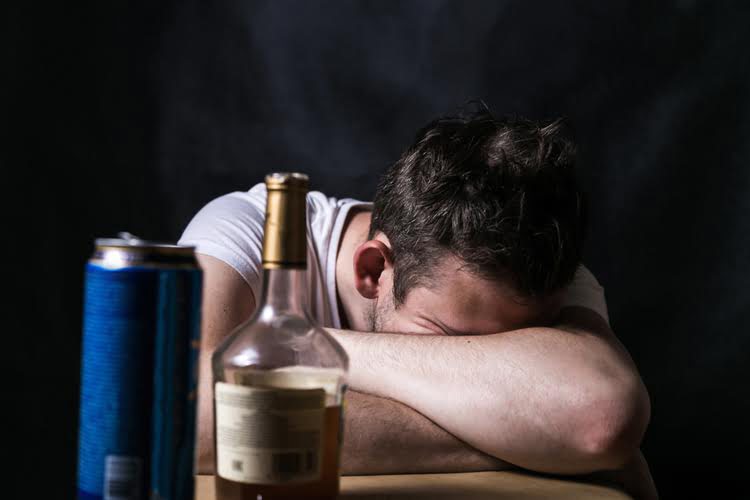Alcohol had been hosting one of the most attended shows for years and, suddenly, it’s gone. It’s as if countless citygoers have nowhere to go, creating chaos and restlessness. By understanding the whys and hows behind insomnia, we can devise strategies to reclaim your sound sleep. This is not just about battling those long wakeful nights; it’s about gaining control of your body and overall wellness.
You don’t need alcohol to sleep
After detox ends, patients begin a rehab program that teaches them how to cope without alcohol and maintain sobriety. If you are struggling to fall asleep or wake up during the night, experts recommend making small changes in your lifestyle like avoiding caffeine and screens before bed to promote better sleep. If you don’t see an improvement after making lifestyle changes, consider making an appointment with a sleep specialist. There are a lot of things that can keep you up at night—from travel and excitement to health conditions and stress. With risk factors this broad, it’s no surprise so many people have trouble sleeping.
- We all react differently to alcohol, though, so some people may need even more time than this.
- Think of your body as a downtown city – buzzing with events and activity.
- We believe everyone deserves access to accurate, unbiased information about mental health and addiction.
- Contact us to learn more about alcohol addiction treatment programs that can work well for your needs in recovery.
How to use magnesium for sleep: Magnesium oil for sleep
- Generally, females and older adults are at a higher risk for insomnia.
- Just like the variances seen in the science behind insomnia after alcohol detox, the duration of insomnia after quitting is equally diverse.
- When you don’t get enough REM sleep, you won’t feel rested, and you’ll see that influence your performance the day after.
- The more alcohol your drink and the closer you drink it to bedtime, the stronger its effects will be.
- However, in more severe withdrawal cases, individuals might suffer from insomnia, extremely vivid dreams or nightmares, and even sleep-impacted disorders like sleep apnea and restless legs syndrome.
You should avoid napping during the day to sleep better at night and make your naps short if you do take one. The more alcohol your drink and the closer you drink it to bedtime, the stronger its effects will be. For people who snore or who have sleep apnea—a disorder that causes repeated pauses in breathing during sleep—drinking alcohol tends to aggravate symptoms. If you have trouble sleeping, your anxiety might increase, and if you have high anxiety, you may have trouble sleeping. In fact, sleep disruption can co-occur with almost all mental health conditions. A single glass of alcohol before bedtime may not interfere with your ability to fall asleep, but indulge in much more and sleep can become impaired.
Alternatives to Alcohol for Sleep

Humans like routines because they’re predictable and monotony tends to make people sleepy, Pelayo says. If you find something that works for you and see an improvement in your sleep, you can always cancel your appointment with a specialist. Or you can keep your appointment to ask about ways to make further improvements. “I think the national average is about two months to see a sleep specialist, so it could be beneficial to call and put yourself on the waitlist first,” he said. When you call our team, you will speak to a Recovery Advocate who will answer any questions and perform a pre-assessment to determine your eligibility for treatment.
However, it’s vital to comprehend how alcohol affects sleep patterns to grasp the knock-on effects of alcohol withdrawal. Figuring out how to sleep without alcohol can be an exhausting process in its own right. The more you build on your belief you need alcohol to sleep, the more drink becomes a crucial part of your nighttime routine. Though we know alcohol isn’t a great way to get to sleep long-term, it can feel like a good choice when you’re struggling with insomnia. However, the more reliant you become on using alcohol to sleep, the harder it’s going to be to change your routine again.

Stop Drinking At Least Three to Four Hours Before Bed
Unpack your darkest circles under your eyes, and let’s walk through the sleepless town once ruled by alcohol. Navigate with valuable insights and find solace in proven solutions. Siestio is an evidence-based resource dedicated to sleep and wellbeing. Whether you’re affected directly or indirectly by sleep issues, we’re here to help. There are various complementary therapies available to ensure you don’t have to switch trouble sleeping without alcohol to issues sleeping without medication. If you’ve entered a stage in your life where you can’t sleep without alcohol, it can be challenging to make a change.
The bride decided to turn a nightmare scenario into a ‘celebration of honesty’ on her wedding day
Research also suggests that alcohol-induced sleep disorders may include sleep apnea and potentially contribute to sleepwalking. However, there is no direct evidence that alcohol causes narcolepsy. While some people find that drinking alcohol helps them fall asleep can’t sleep without drinking more easily, alcohol ultimately has a negative impact on sleep. Even in moderate amounts, alcohol consumed in the hours before bedtime can cost you sleep and leave you feeling tired the next day. Yes, rehab for insomnia during alcohol withdrawal is beneficial.

